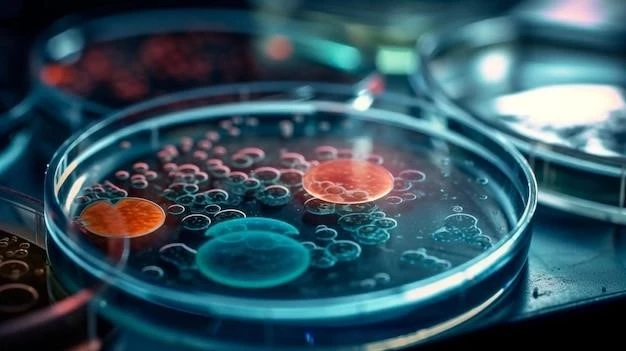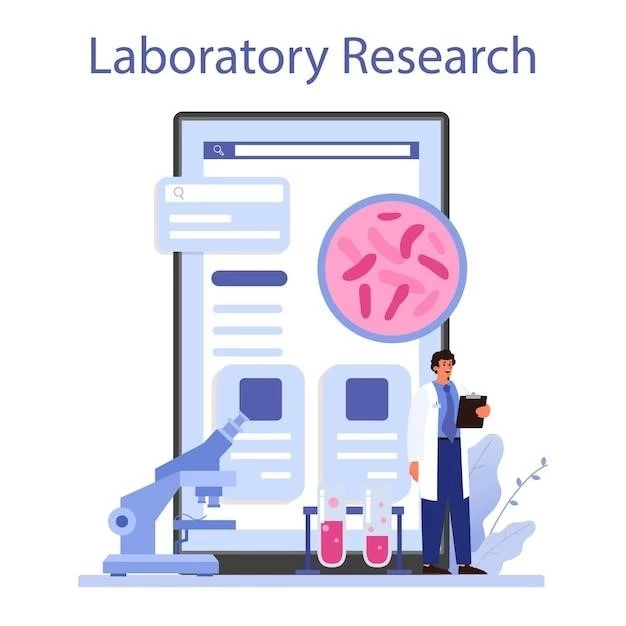Ectodermal Dysplasia Berlin Type
As a rare disorder, Ectodermal Dysplasia Berlin Type presents with various abnormalities such as teeth, hair, nails, and sweat glands. Genetic testing is crucial for diagnosis, and understanding its inheritance pattern is essential. Treatment options involve dental care, dermatological intervention, pediatric care, and genetic counseling.
Introduction to Ectodermal Dysplasia Berlin Type
Ectodermal Dysplasia Berlin Type is a rare genetic disorder characterized by abnormalities in ectodermal structures like teeth, hair, nails, and sweat glands. It is crucial to recognize the clinical manifestations and understand the inheritance pattern to provide appropriate care. Genetic testing plays a vital role in confirming the diagnosis. This article aims to explore the diagnostic criteria, treatment options, and the roles of healthcare professionals in managing individuals with Ectodermal Dysplasia Berlin Type.
Diagnostic Criteria for Ectodermal Dysplasia Berlin Type
Diagnosing Ectodermal Dysplasia Berlin Type involves a thorough clinical evaluation of the individual’s teeth, hair, nails, and sweat glands. Additionally, genetic testing is essential to identify specific gene mutations associated with this rare disorder. Criteria include the presence of multiple abnormalities in ectodermal structures, family history of similar conditions, and molecular genetic testing results. A multidisciplinary approach involving dermatologists, pediatricians, and genetic counselors is crucial for a comprehensive diagnosis and management plan.

Genetic Testing for Ectodermal Dysplasia Berlin Type
Genetic testing plays a pivotal role in diagnosing Ectodermal Dysplasia Berlin Type by identifying specific gene mutations responsible for the disorder. This testing involves analyzing DNA samples to detect alterations in genes associated with ectodermal structure abnormalities. The results help confirm the diagnosis and provide valuable information for personalized treatment approaches. Genetic counselors play a key role in interpreting test results, discussing inheritance patterns, and providing support to individuals and families navigating the genetic aspects of Ectodermal Dysplasia Berlin Type.
Understanding Ectodermal Dysplasia as a Syndrome
Ectodermal Dysplasia Berlin Type is considered a syndrome due to its characteristic combination of abnormalities affecting ectodermal structures. These syndromes are often genetic in nature and involve multiple organ systems, leading to diverse clinical manifestations. Understanding Ectodermal Dysplasia as a syndrome emphasizes the importance of a holistic approach to diagnosis, treatment, and management. Healthcare professionals must consider the systemic impact of this rare disorder on various aspects of an individual’s health and well-being.
Inheritance Patterns of Ectodermal Dysplasia Berlin Type
Ectodermal Dysplasia Berlin Type follows an inheritance pattern that is typically autosomal dominant, although autosomal recessive and X-linked recessive patterns have also been reported in some cases. Understanding the inheritance patterns is crucial in genetic counseling, family planning, and assessing the risk of passing on the disorder to future generations. Genetic counselors play a pivotal role in elucidating these inheritance patterns and providing individuals and families with the information needed to make informed decisions regarding their health and well-being.
Clinical Manifestations⁚ Teeth Abnormalities
Teeth abnormalities are hallmark features of Ectodermal Dysplasia Berlin Type, commonly characterized by missing teeth (hypodontia), malformed teeth, or abnormal tooth structure. Individuals may also exhibit delayed tooth eruption or unusually small teeth. These dental manifestations can impact aesthetics, speech, chewing, and overall oral health. Dental professionals play a key role in managing teeth abnormalities by providing interventions such as dental implants, dentures, or other prosthetic options to improve function and aesthetics, enhancing the quality of life for individuals affected by Ectodermal Dysplasia Berlin Type.
Clinical Manifestations⁚ Hair Abnormalities
Hair abnormalities in Ectodermal Dysplasia Berlin Type can present as sparse, fine, or brittle hair. Individuals may experience slow hair growth, thinning hair, or even complete hair loss in some cases. The scalp may also be dry or scaly. These hair abnormalities can have a significant impact on self-esteem and psychological well-being. Dermatologists play a crucial role in managing hair abnormalities by providing treatment options such as topical medications, haircare regimens, and scalp treatments to improve hair health and appearance, addressing the unique challenges faced by individuals with Ectodermal Dysplasia Berlin Type.
Clinical Manifestations⁚ Nail Abnormalities
Nail abnormalities are common clinical manifestations of Ectodermal Dysplasia Berlin Type, characterized by thin, brittle, or improperly formed nails. Individuals may have nails that are discolored, ridged, or easily breakable. Some may experience absence or underdevelopment of nails. These nail abnormalities can impact manual dexterity, self-image, and overall hand function. Dermatologists can provide care for nail abnormalities by recommending nail care practices, moisturizing treatments, and nail protectants to improve nail health and appearance, addressing the specific concerns related to nail abnormalities in individuals with Ectodermal Dysplasia Berlin Type.
Clinical Manifestations⁚ Sweat Gland Abnormalities
Sweat gland abnormalities are prevalent in individuals with Ectodermal Dysplasia Berlin Type, leading to reduced or absent sweating (anhidrosis or hypohidrosis). The inability to regulate body temperature through normal sweating can result in overheating and increased risk of heat-related complications. Individuals may also have dry skin due to decreased sweat production. It is essential for individuals with sweat gland abnormalities to avoid overheating, stay hydrated, and monitor body temperature during hot weather or physical activity. Dermatologists can provide guidance on managing sweat gland abnormalities and recommend strategies to prevent complications associated with impaired sweating in individuals with Ectodermal Dysplasia Berlin Type.
Treatment Options for Ectodermal Dysplasia Berlin Type
Managing Ectodermal Dysplasia Berlin Type involves a multidisciplinary approach to address the diverse clinical manifestations. Treatment options may include dental interventions such as dental implants, veneers, or dentures to restore missing or malformed teeth. Dermatological management focuses on addressing hair and nail abnormalities with topical treatments, hair care regimens, and nail care practices. Individuals with sweat gland abnormalities may benefit from strategies to prevent overheating and maintain skin hydration. Genetic counseling plays a crucial role in providing information and support to individuals and families affected by Ectodermal Dysplasia Berlin Type. Early intervention and comprehensive care tailored to the specific needs of each individual are essential in improving quality of life and overall health outcomes.
Importance of Dental Care in Ectodermal Dysplasia Berlin Type
Dental care is paramount in the management of Ectodermal Dysplasia Berlin Type due to the significant teeth abnormalities that individuals experience. Proper dental interventions are essential to address issues such as missing or malformed teeth, which can impact speech, chewing function, and aesthetics. Regular dental check-ups, preventive care, and early intervention with dental prosthetics like implants or dentures can significantly improve oral health and overall quality of life for individuals with Ectodermal Dysplasia Berlin Type. Collaboration between individuals, caregivers, and dental professionals is crucial in developing personalized dental care plans tailored to the specific needs of each individual.
Role of Dermatologist in Managing Ectodermal Dysplasia Berlin Type
Dermatologists play a crucial role in the comprehensive management of Ectodermal Dysplasia Berlin Type by addressing hair, nail, and skin abnormalities that individuals may experience. They provide specialized care and treatment options to manage hair thinning, dry scalp, nail deformities, and dry skin associated with the condition. Dermatologists offer expertise in recommending topical treatments, haircare regimens, nail care practices, and skincare routines tailored to the unique needs of individuals with Ectodermal Dysplasia Berlin Type. Collaborating with other healthcare professionals, dermatologists contribute to improving the overall well-being and quality of life of individuals affected by this rare disorder.
Involvement of Pediatrician in the Care of Individuals with Ectodermal Dysplasia Berlin Type
Pediatricians play a vital role in the comprehensive care of individuals with Ectodermal Dysplasia Berlin Type, especially in the early stages of diagnosis and ongoing management. They monitor growth and development, provide guidance on nutrition to support overall health, and coordinate referrals to specialists such as dermatologists, dentists, and genetic counselors as needed. Pediatricians collaborate with other healthcare professionals to ensure a coordinated approach to addressing the diverse clinical manifestations of the disorder. They also offer valuable support and information to individuals and families, fostering a holistic and patient-centered care model for those affected by Ectodermal Dysplasia Berlin Type.
The Role of Genetic Counselor in Ectodermal Dysplasia Berlin Type
Genetic counselors play a pivotal role in Ectodermal Dysplasia Berlin Type by providing expert guidance on the genetic aspects of the disorder. They offer counseling and support to individuals and families regarding the inheritance pattern, recurrence risks, and available genetic testing options. Genetic counselors help individuals make informed decisions about family planning, understand the implications of genetic test results, and navigate the complex genetic information associated with Ectodermal Dysplasia Berlin Type. By offering emotional support, education, and advocacy, genetic counselors contribute to empowering individuals and families affected by this rare disorder to make proactive choices regarding their health and well-being.
